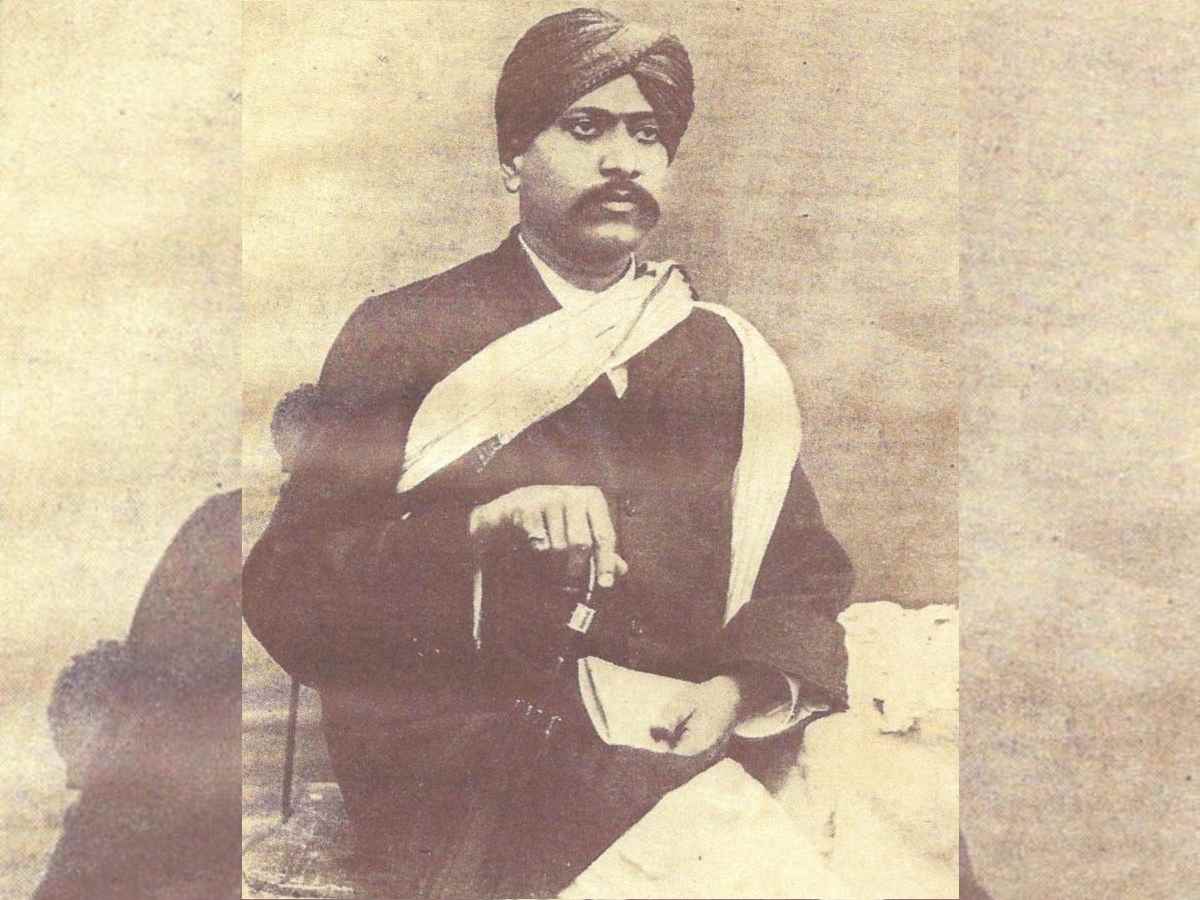
Pandit Bhaskarrao Bakhale
Pandit Bhaskarrao Bakhale, a Gujarati-born singer, died in 1922 at the young age of 53, but he remains an impactful musician in North India to this day. Surprisingly, though he lived most of his life in Gujarat, Baroda, Dharwad, Kolhapur, and Pune, Maharashtra, his brief foray into Punjab remains remembered to this day.
Despite many festivals being held over the decades in Maharashtra to commemorate him, the only one that continues its annual tribute since 1969 is the Chandigarh-based Pracheen Kala Kendra Festival.
Bakhale’s connection with Punjab was tenuous, to say the least, but remains impactful to this day. He was originally introduced to Punjab by Pandit Vishnu Digambar Paluskar and performed at the famed Harivallabh Festival in Jalandhar. Acclaimed as “Dev Gandharva,” Bakhale attracted the attention of musicians in the region.
Also Read: Muzaffar Ali’s Faras Nama showcases horses as symbols of Sufi spirituality
Pandit Dilip Chandra Vedi (1901-1992) wrote about the first time he heard Bakhale sing at Harivallabh on December 26, 1911; it was Raga Hameer, and Bakhale presented two compositions, including the bandish in Punjabi “mendere yaar,” followed by a tarana.
“When the recital was over, some people touched his feet, others prostrated themselves.”
Vedi followed his Guru to Maharashtra, where he learnt from him until his death in 1922; in turn, he kept Bakhale’s legacy alive by teaching many disciples in the Punjab region, including Pandit Madan Lal Bali.
Bakhale’s visit to Patiala and his concert on January 3, 1920, at the royal court of Maharaja Bhupinder Singh also made waves.
Ustad Ali Baksh, one of the duo of brothers known as “Alliya Fatu” (Ali Baksh and Fateh Ali), regarded as the founders of the Patiala gharana, was 77-year-old at the time, yet was impressed by Bakhale’s singing. Apparently, after the concert, he told the Maharaja, “People say Ali Baksh is conceited, he never praises anyone. But the truth is no one impresses me. I feared ‘khayal gayaki’ is dying, but by the grace of God, there is one khayal singer alive in Pandit Bhaskarbuwa. He has no equal – Hindu or Muslim.”
This was high praise indeed from a senior of a different gharana, addressed to his patron, on whom he depended entirely for his livelihood!
Amongst the first singers of his time to be trained in different gharanas, Bakhale learned from the Gwalior gharana doyen Ustad Faiz Muhammed, Agra gharana’s Ustad Nathan Khan, and even Jaipur Attrauli founder Ustad Alladiya Khan. Perhaps this is what made him such an unusual and fine singer. Today, of course, with the lines between gharanas blurring, most singers show influences of other styles. But 100 years ago, this was not the norm.
Vamanrao Deshpande, the well-known musicologist, writing 45 years after Bakhale’s death, says, “It has been 45 years since Buwa (Bhaskarrao) passed away, but I have not heard any vocalist make a derogatory remark about his singing. On the contrary, all illustrious musicians, whenever they had occasion to refer to him, have done so with the deepest reverence and affection.”
The festival in tribute to Pandit Bhaskarrao Bakhale has always included dance, vocal, and instrumental music. As Guru Shobha Koser, one of the founders of the Pracheen Kala Kendra, said, “Right from its inception, we included dance, instrumental music, as well as vocal music. Our concept in India has always been that the three art forms are entwined.”
Remembering how it all started, she recalled, “Vedi ji, who was a dear friend of my husband (ML Koser), requested him to hold a festival in his Guru’s name, which my husband promptly agreed to. He was truly a great artist, a ‘triveni.’ It was so nice for me to visit Bhaskarrao ji’s home in Pune a few years ago. His daughter has published a book of his compositions.”
The lineup of artists at Delhi’s Kamani Auditorium on November 9-10 is an eclectic mix. The festival opens with a santoor recital by Abhay Rustum Sopori.
Now Delhi-based, Sopori represents the traditional Sufiyana style of santoor from Kashmir. He will be accompanied by Mumbai -based tabla exponent Satyajit Talwalkar and on the Kashmiri ‘wasul’ by Chanchal Singh. Next is a vocal concert by Jayateerth Mevundi from Dharwad, accompanied by Abhishek Mishra on tabla and Vinay Mishra on harmonium.
The evening concludes with a sarod recital by Kolkata-based Pandit Tejendra Narayan Majumdar, accompanied by Ustad Akram Khan on tabla. The next day features a sitar recital by Delhi’s Adnan Khan accompanied by Ustad Akram Khan, followed by kathak dancer Madhumita Roy Mishra, concluding with Odissi by Meera Das and her troup
Delhi High Court grants bail to 26-year-old Thar driver accused of mowing down two in…
Two Rohini men arrested for fatally stabbing one person and injuring another during a robbery…
Rekha Gupta marks one year in office, highlighting welfare schemes, infrastructure work, and governance reforms…
Four men, including the alleged mastermind, were arrested for luring a shopper with fake cash…
A neighbour was arrested after allegedly luring, raping, and strangling a three-year-old girl in Gurugram,…
Pracheen Kala Kendra’s Quarterly Baithak will feature Hindustani vocal by Rashmi Chaudhary and a tabla…